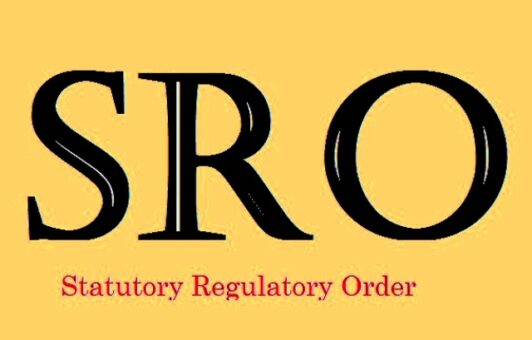Karachi, October 19, 2024 – The Federal Board of Revenue (FBR) has announced a reduction in the valuation of steel goods for the purpose of calculating sales tax. This adjustment is expected to bring some respite to the sector, which has been grappling with fluctuating input costs and market volatility.
The FBR formalized this reduction through the issuance of SRO 1636(I)/2024, dated October 17, 2024. By exercising its powers under the first proviso to clause (46) of section 2 of the Sales Tax Act, 1990, the FBR has superseded its earlier Notification No. SRO 501(1)/2023, dated April 20, 2023, revising downward the minimum valuation of locally produced steel goods for sales tax purposes.
Key Reductions in Steel Goods Valuation
As per the newly released valuation table, the FBR has implemented significant reductions across various categories of steel goods:
• Steel Bars and Long Profiles: The minimum value for steel bars and other long profiles has been lowered to Rs 205,000 per metric ton, down from the previous valuation of Rs 225,000. This adjustment represents a Rs 20,000 decrease, aimed at easing the financial burden on steel manufacturers and suppliers.
• Steel Billets: The value of steel billets has been revised downward to Rs 175,000 per metric ton, compared to the previous rate of Rs 195,000. This Rs 20,000 reduction is expected to improve liquidity and market dynamics for steel billet producers.
• Steel Ingots: For steel ingots, the FBR has slashed the valuation from Rs 180,000 to Rs 160,000 per metric ton. This Rs 20,000 reduction is intended to further boost the competitiveness of local ingot manufacturers.
• Ship Plates: The value of ship plates has been brought down to Rs 154,000 per metric ton from the earlier Rs 172,000. The Rs 18,000 reduction in valuation for ship plates is likely to provide a much-needed stimulus to shipbreaking and related industries.
Tax Implications and Industry Impact
While the FBR has re-fixed the minimum valuation of these steel products, it has also clarified that if the actual value at which the products are supplied exceeds the fixed valuation, the sales tax will be calculated based on the higher value. This provision ensures that the taxation process remains equitable and reflective of market conditions.
This strategic reduction by the FBR is expected to foster growth within the steel industry, encouraging production and supply at more competitive rates. Industry stakeholders have welcomed the move, anticipating that the revised valuations will enable better pricing, higher demand, and more stabilized operations in a sector crucial to Pakistan’s industrial landscape.
As steel prices are a major factor in construction and infrastructure projects, this reduction could also have positive downstream effects, potentially lowering costs in sectors reliant on steel products. The FBR’s initiative underscores its commitment to stimulating economic activity while ensuring compliance with the Sales Tax Act, 1990.
